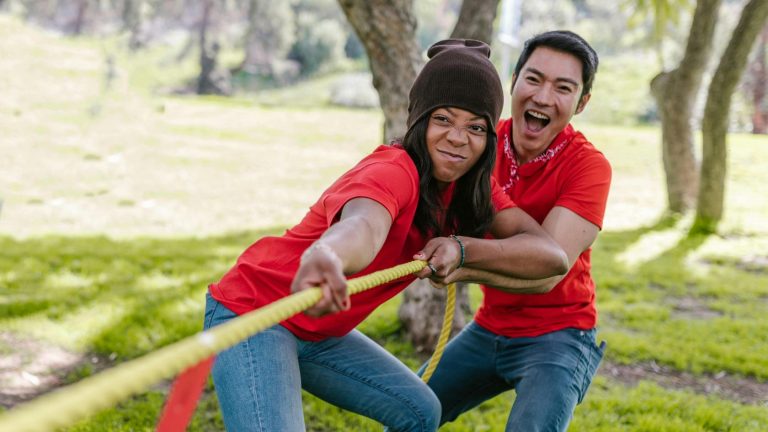How Knitting and Crocheting Are Empowering Trans and Non-binary People
Have you ever looked down at the interlocked loops of your sweater, and thought about the generations of strong, skillful women behind knitting? Or held a crocheted piece and realized it carries the same legacy? Both of these age-old crafts are currently enjoying a huge revival on social media as hobbies. In fact, as of 2023, over 45 million people in the United States knit, crochet, or do both. And, despite misconceptions, people of all genders embrace them.
For non-binary and trans creator Aspen, also known as Made in the Moment, knitting and crocheting are a medium to explore identity, build community, and advocate for causes—all while honoring the women who molded these crafts and developed remarkable techniques that are widely used today.

What do knitting and crocheting mean to Aspen?
Aspen learned knitting from their grandmother as a child. But it wasn’t until the pandemic, when a friend suggested they try crochet, that these crafts took on a new meaning. Aspen started using knitting and crocheting to make clothes and explore their personal style. “I wanted to be able to make my own clothes and experiment with what that looks like,” they explain.
As their gender identity developed, their designs shifted too. Early projects involved colorful and feminine designs, like crop tops and sleeves. They then started gravitating towards more timeless, masculine, and oversized clothing. “I feel like I’m getting closer to what I want to be wearing now,” they say. These crafts have become an empowering way for them to align personal style with their evolving identity.
Though their projects range from a mix of masculine and feminine to neither, Aspen always acknowledges the importance of celebrating the women behind the craft. They highlighted: “There is [an] important tradition of strong women who really forged the path for the technology we have now—better yarn winders, better spinning equipment, and access to the yarn that all of us use today!”
How did knitting and crocheting help them build community?
At first, knitting was something Aspen did for themselves and their friends. However, it quickly became a way to connect with the rest of the world. Instagram and YouTube helped them find a community of like-minded individuals, including people from the LGBTQAI+ community, who used fiber arts as a hobby or a way to explore their identity. These connections have become friendships central to Aspen’s personal and fiber arts journey.
Made in the Moment has also created an online pattern business that contributes to the community. Their store fills style gaps they see in the market while designing for all genders and body sizes. Inclusivity and representation are at the heart of their designs, which tend to feature graphic motifs through colorwork, a technique that uses various yarn colors to create patterns.

How can fiber arts be a tool for advocacy?
For Aspen, knitting and crocheting are also ways to advocate for causes they care about. After Roe v. Wade was overturned, Aspen knit a sweater with the message “Abortion is healthcare” and held a raffle to raise money for the National Network of Abortion Funds. This allowed them to use their crafts to advocate for reproductive rights.
Beyond digital activism, they have also participated in yarn bombing, where colorful knitted or crocheted pieces are wrapped around public objects to make statements. “It was really interesting to get to be a part of in-person events as well,” Aspen reflects. For them, fiber arts is a platform for expression in terms of both gender and politics.

Aspen encourages curious non-binary and trans people to pick up their tool of choice: whether it’s knitting needles, a crochet hook, or both! They believe there’s plenty of room for more creators, and these crafts offer a unique way to self-discovery and creativity. “You can learn so much about yourself and your body,” they say. The supportive community and the simple joy of creating with your hands also make these activities worth exploring.
Learn about the quest for non-binary and trans representation in video games.

